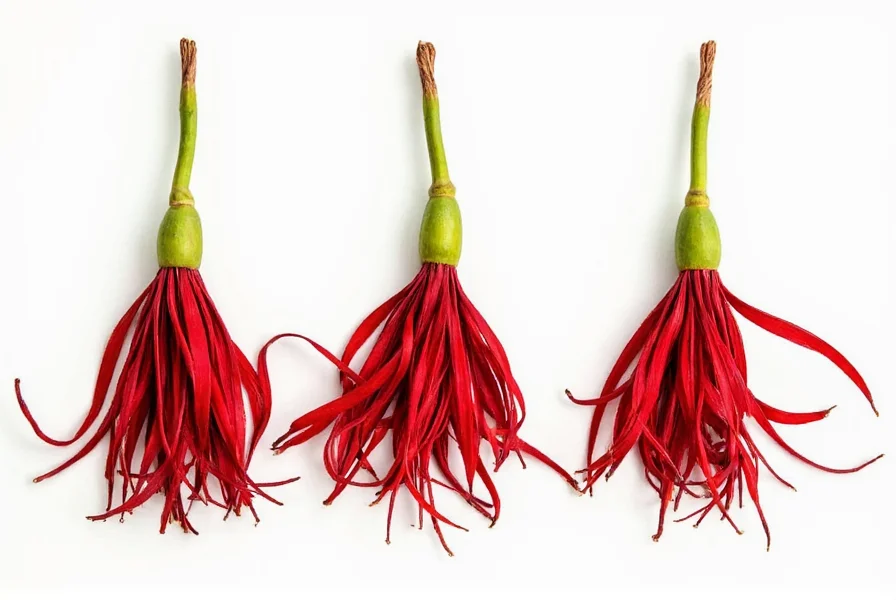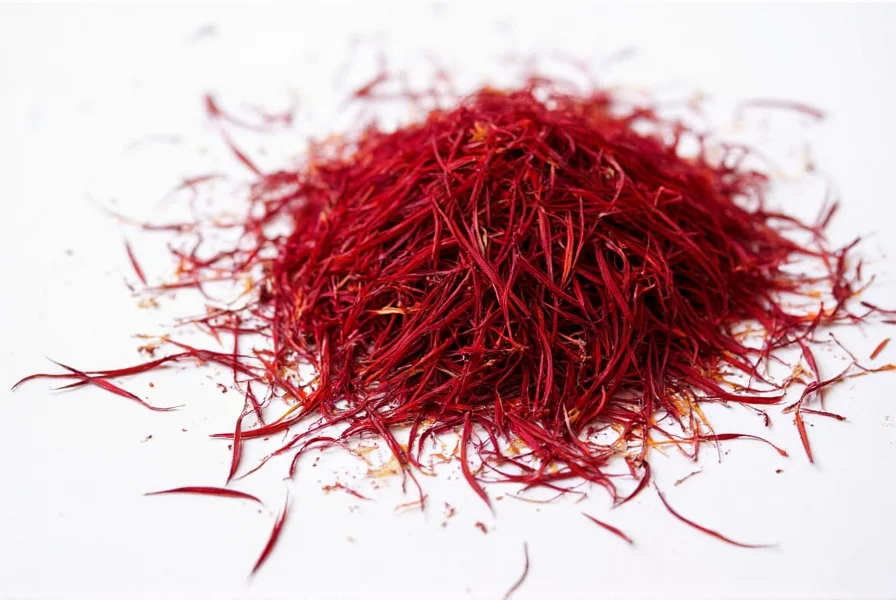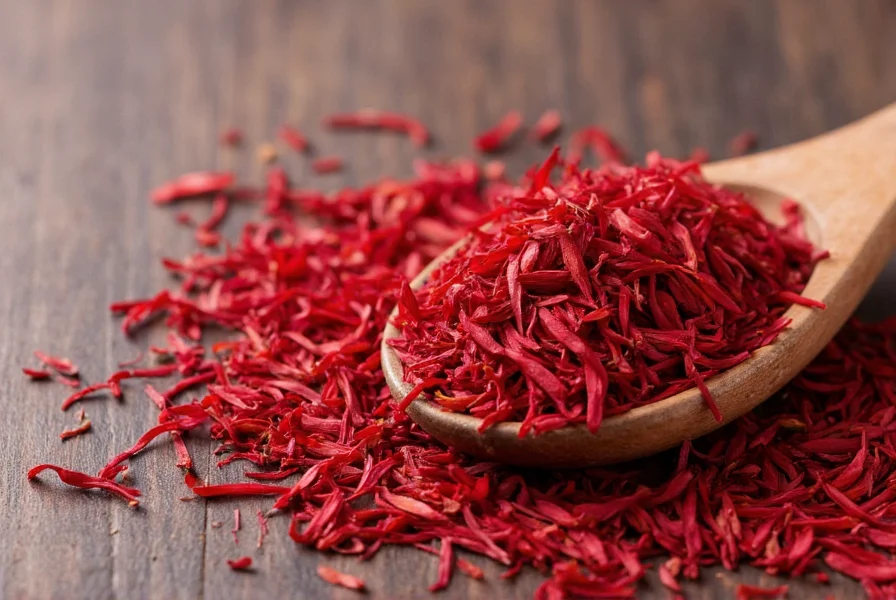As interest in natural alternatives for ADHD management grows, saffron has emerged as a potential complementary option. This precious spice, derived from Crocus sativus flowers, contains bioactive compounds like crocin and safranal that may influence neurotransmitters involved in attention regulation. While not a replacement for established ADHD treatments, emerging research provides promising insights into saffron's potential role in symptom management.
Understanding Saffron's Potential Mechanism for ADHD
Saffron's potential benefits for ADHD appear linked to its effects on key neurotransmitters. The active compounds crocin and safranal demonstrate inhibitory effects on dopamine, norepinephrine, and serotonin reuptake—similar to some conventional ADHD medications but with a milder mechanism. This modulation may help improve attention span and reduce hyperactivity without the intensity of prescription stimulants.
Unlike pharmaceutical options that often target single pathways, saffron works through multiple mechanisms simultaneously. Research published in the Journal of Child and Adolescent Psychopharmacology suggests saffron's antioxidant properties may also protect neural pathways affected by ADHD, potentially addressing underlying oxidative stress factors.

Clinical Evidence: What Research Shows About Saffron and ADHD
Several clinical trials have investigated saffron's effectiveness for ADHD. A 2020 double-blind study compared 50-80mg daily of saffron extract to methylphenidate in children aged 6-17. Results showed comparable improvements in ADHD Rating Scale scores after six weeks, with saffron demonstrating particular effectiveness for inattentive symptoms.
| Study | Participants | Dosage | Duration | Key Findings |
|---|---|---|---|---|
| Azami et al. (2020) | 64 children (6-17 years) | 50-80mg/day saffron extract | 6 weeks | Comparable to methylphenidate for inattention symptoms |
| Hausenblas et al. (2022) | 42 adults | 30mg twice daily | 8 weeks | Significant improvement in executive function measures |
| Kianpour et al. (2019) | 54 adolescents | 30mg twice daily | 6 weeks | Reduced hyperactivity scores by 28% compared to placebo |
Saffron Compared to Traditional ADHD Treatments
When considering saffron for ADHD symptom management, it's essential to understand how it compares to conventional treatments. Prescription medications like methylphenidate and amphetamines typically produce more dramatic symptom reduction, particularly for severe ADHD cases. However, saffron may offer advantages for individuals experiencing significant side effects from traditional medications or those with mild symptoms.
Unlike stimulant medications that can cause appetite suppression, sleep disturbances, and emotional blunting, saffron generally demonstrates a more favorable side effect profile. Common saffron side effects include mild gastrointestinal discomfort or headache, typically at higher doses. The natural alternative for saffron in ADHD treatment appears most appropriate as a complementary approach rather than a complete replacement for evidence-based treatments.
Dosage Guidelines and Safety Considerations
Research on saffron for ADHD has primarily used standardized extracts containing 3.5% safranal and 5% crocin. Effective doses in clinical studies range from 30-80mg daily, typically divided into two doses. Most studies recommend starting with 30mg twice daily and adjusting based on response and tolerance.
Safety considerations include potential interactions with antidepressants (particularly SSRIs) due to saffron's serotonin-modulating effects. Pregnant women should avoid therapeutic doses of saffron, as high amounts may stimulate uterine contractions. Individuals with bipolar disorder should use saffron cautiously, as it may trigger manic episodes in susceptible individuals.

Professional Recommendations for Saffron Use in ADHD Management
Healthcare professionals generally recommend considering saffron as part of a comprehensive ADHD management plan rather than a standalone solution. Board-certified psychiatrists specializing in ADHD treatment suggest the following approach:
- Consult with your healthcare provider before starting saffron supplementation
- Use only standardized extracts from reputable manufacturers
- Monitor symptoms systematically using validated ADHD rating scales
- Continue conventional treatments while introducing saffron, then adjust under medical supervision
- Allow 4-6 weeks to assess effectiveness before making dosage changes
The American Academy of Pediatrics doesn't currently endorse saffron as a primary ADHD treatment but acknowledges its potential as a complementary option for certain patients. More extensive, long-term studies are needed before saffron can be considered a standard treatment option for ADHD.
Practical Considerations for Those Exploring Saffron for ADHD
For individuals considering saffron as part of their ADHD management strategy, several practical factors deserve attention. The cost of high-quality saffron extract can be significant—typically $30-$50 monthly—compared to generic prescription options. Insurance coverage for saffron supplements remains limited, making it a primarily out-of-pocket expense.
Quality varies considerably among saffron products. Look for third-party testing certifications from organizations like USP or NSF International. Products should specify the concentration of active compounds (crocin and safranal) rather than just total saffron weight. The most effective saffron for ADHD symptom relief appears to be standardized extracts rather than culinary-grade saffron.
Conclusion: A Promising but Limited Option
Current evidence positions saffron as a potentially beneficial complementary option for ADHD management, particularly for individuals seeking alternatives to traditional medications or experiencing significant side effects. While research shows promise, particularly for mild to moderate ADHD symptoms, saffron shouldn't replace evidence-based treatments without medical supervision.
The scientific community calls for larger, longer-term studies to establish saffron's place in ADHD treatment protocols. Until more comprehensive data becomes available, a cautious, medically supervised approach represents the most responsible path for those considering saffron for ADHD symptom management.











 浙公网安备
33010002000092号
浙公网安备
33010002000092号 浙B2-20120091-4
浙B2-20120091-4